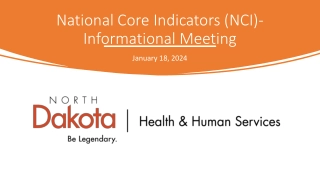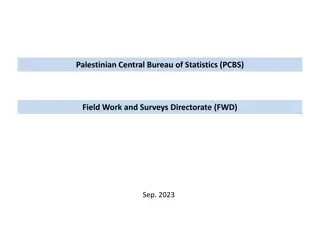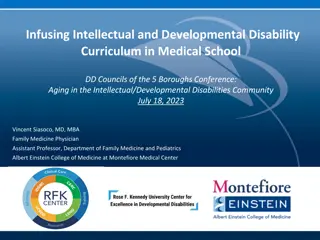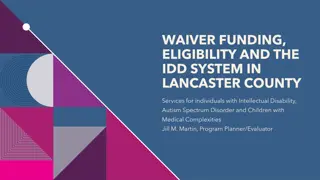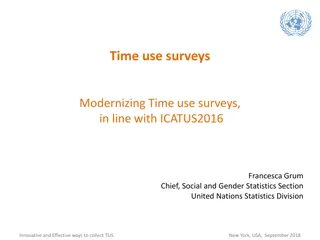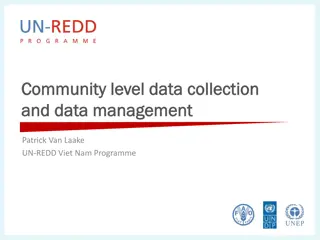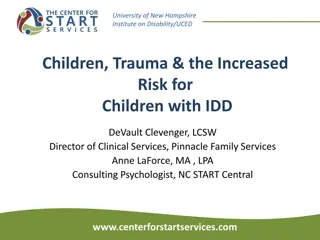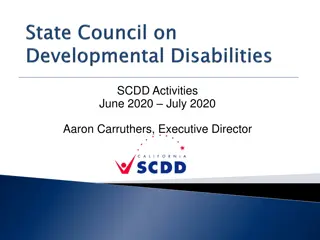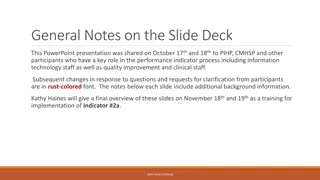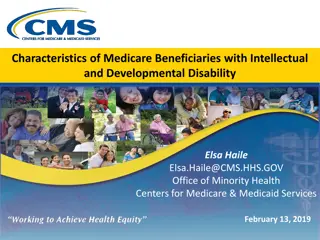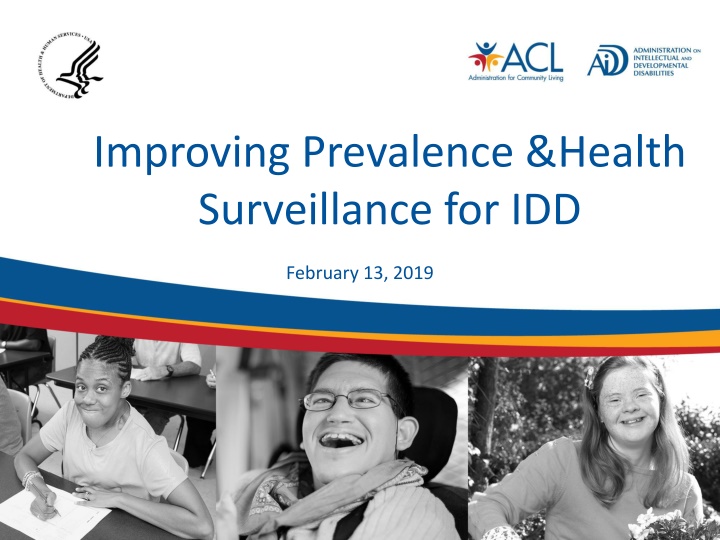
Improving Prevalence and Health Surveillance for IDD: Key Findings and Next Steps
Federal agencies are in need of better prevalence data to inform program planning, fiscal projections, and policy needs for intellectual and developmental disabilities (IDD). Efforts have been made to address the lack of usable data sources, including revising the NHIS and SIPP. Workgroups have been established to develop guiding principles, identify key questions for national surveys, and standardize state administrative data sets. The focus is on understanding prevalence, health status, and determinants of individuals with IDD. Collaboration across agencies and stakeholder groups is emphasized for improved health surveillance practices.
Download Presentation

Please find below an Image/Link to download the presentation.
The content on the website is provided AS IS for your information and personal use only. It may not be sold, licensed, or shared on other websites without obtaining consent from the author. If you encounter any issues during the download, it is possible that the publisher has removed the file from their server.
You are allowed to download the files provided on this website for personal or commercial use, subject to the condition that they are used lawfully. All files are the property of their respective owners.
The content on the website is provided AS IS for your information and personal use only. It may not be sold, licensed, or shared on other websites without obtaining consent from the author.
E N D
Presentation Transcript
Improving Prevalence &Health Surveillance for IDD February 13, 2019
The Issue Federal agencies need prevalence data to inform: Program planning Fiscal projections Policy needs Prevalence data are not useable and data sources are dwindling 1994/95 NHIS-D NHIS revision for 2019 SIPP revision for 2014
Initial Input and Meeting Initial discussions in 2015-16 with ASPE, NCHS, CDC/NCBDDD and ACL; field experts Summit November, 2017 Reached out to HHS partners Commissioned briefing summary ~40 experts: agencies, disability organizations, university researchers Need, NHIS opportunities, future directions Workgroups, 2018
Workgroup Charge To prioritize and address the need for better data to understand the prevalence, health status and health determinants of people with intellectual and developmental disabilities: Workgroup 1: Develop guiding principles and identify question(s) for use with the revised NHIS (and other national surveys) to identify persons with IDD to estimate prevalence. Workgroup 2: Describe approaches for standardization and utilization of state administrative data sets for richer data on health status and factors that influence health of persons with IDD.
Findings and next steps National Prevalence & Health Surveillance Work with NCHS to develop questions on: a. Learning b. Independent living skills c. Age of onset Update and benchmark prevalence estimates Continue collaboration across agencies and stakeholder groups for greater implementation of health surveillance Consistently include the U.S. territories in data collection
FindingsState and Local Administrative Data Use consistent operational definitions in data collection (including race, ethnicity and primary language) Promote research to fill knowledge gaps Encourage wide dissemination of research findings to inform programs, practices, and policies.
Next Steps Collaborations to: Develop identification questions for use in NHIS and other surveys Conduct a comprehensive scan of state data collection efforts Develop a learning collaborative and/or community of practice on data harmonization and data linkages Identify and enhance data collection methods within states for the IDD population Ensure inclusion of racial/ethnic/linguistic data collection
Contact Information Jennifer Johnson, PhD Deputy Director, AIDD/ACL Jennifer.Johnson@acl.hhs.gov Or Andrew Morris, MPH Policy Analyst, Acl Andrew.morris@acl.hhs.gov

